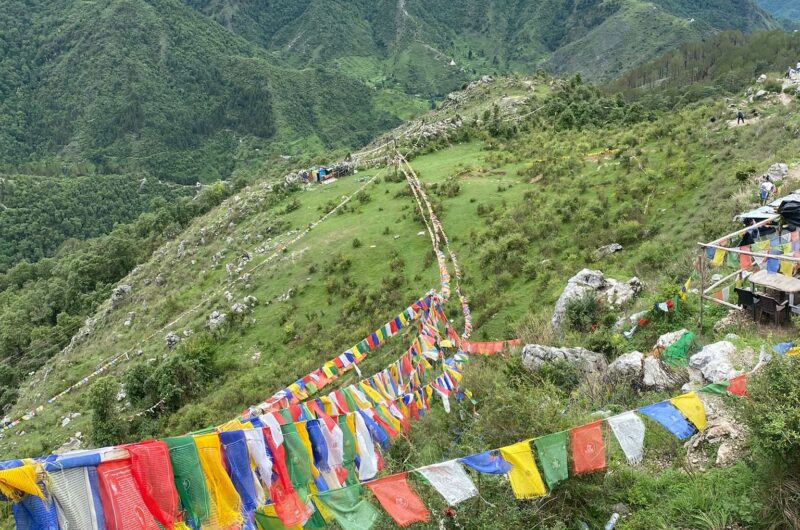Medical student Ella Clyne describes the challenges and rewards of her ethical elective in India focusing on women’s health and palliative care.
“I am passionate about public health and social inclusion – getting involved with global health is a way to further this interest on a larger scale. I was very excited to be involved in this project as it combined two of my areas of interest, women’s health and palliative care.
I was based in northern India, working in a CGHP-supported partnership between the Rama Foundation, a Cambridge-based charity working to tackle inequality in Uttarakhand, and three partner organisations in India (Ganga Prem hospice, Swami Vivekanand Health Mission and the Himalayan Institute of Medical Sciences).
Although the partnership has been ongoing for years, Libby and I were the first medical students to become involved and visit India. This was a privilege and hopefully will encourage many other students to join the partnership in the future.
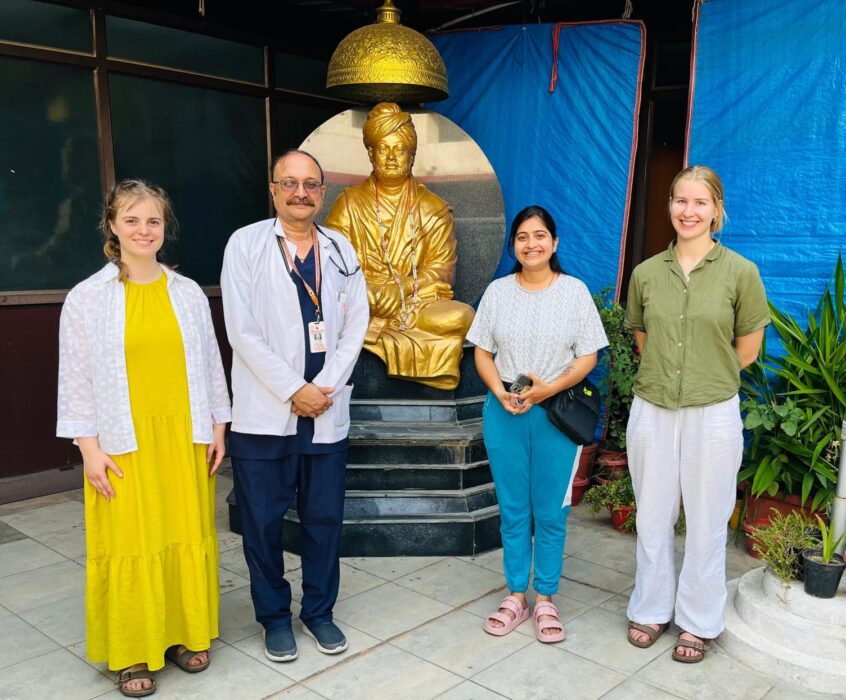
Applying NHS knowledge in India
One part of our project focused on helping to develop an on-site women’s health service at Swami Vivekanand Health Mission, by assessing the health needs of women in the local area. Using our knowledge of women’s health screening and gynaecology in the NHS to guide the questions, we gathered information through a questionnaire. This will help to tailor the development of the women’s health service to meet their needs. We made leaflets to raise awareness of the issues that were most prevalent in the area, including anaemia, which over 60% of the survey respondents reported symptoms of.
We also used our knowledge to conduct a women’s health education session and make an age-appropriate poster for older girls at Sri Ram Ashram orphanage. Both initiatives were successful, and we received positive feedback from staff at the Ashram and the girls alike.
Our visit to the Himalayan Institute of Medical Sciences allowed us to spread the word that a gynaecologist is needed to work once every fortnight at the Women’s Health Clinic in Swami Vivekanand. We found a few local gynaecologists who are interested in helping.
Another focus for us was to assess the bereavement support needs of staff at Ganga Prem hospice. Using our experience in the UK palliative care sector, we designed a questionnaire to explore this further. The questionnaire highlighted a need for further support and the medical director was keen to find a way to support staff more actively. Through connections that we have at Arthur Rank Hospice in Cambridge, we are hoping to learn more about how they support their staff and share that knowledge with Ganga Prem Hospice.
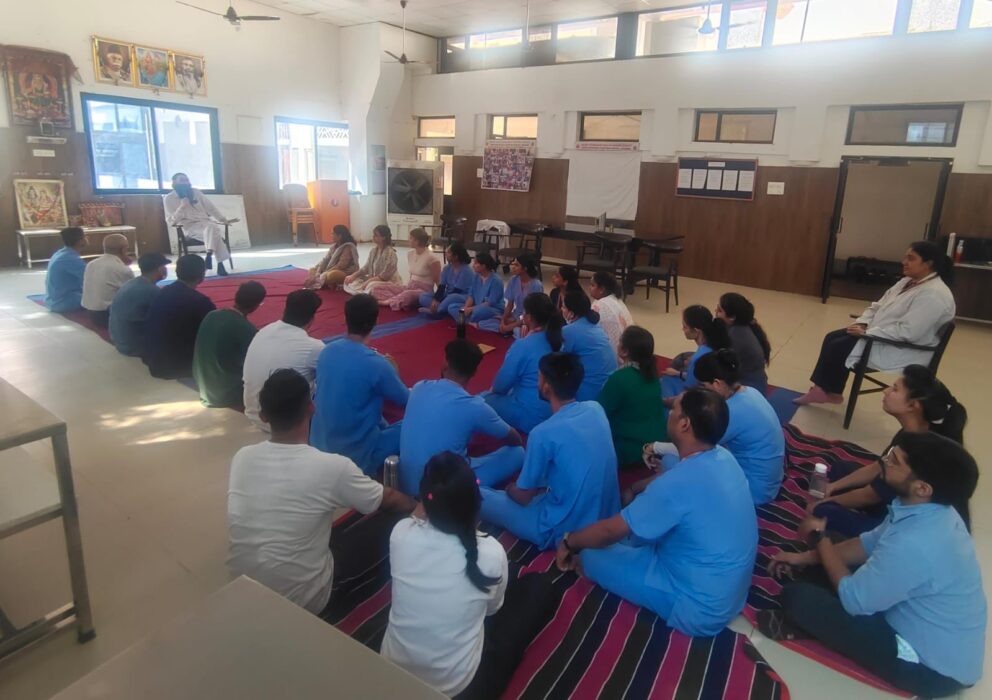
Learning from a different healthcare system
During our time in India, there was a clear emphasis placed on lifestyle advice and preventative medicine. This was particularly important due to the high prevalence of type 2 diabetes in the local area. This experience will encourage me to take a preventative approach when seeing patients and to sensitively discuss lifestyle modifications where appropriate.
An ayurvedic doctor worked alongside the medical doctors in one of the hospitals we worked at. This created a holistic approach to healthcare that is sometimes lacking in the NHS. A similar approach, such as having complementary therapies readily available in the NHS would be an innovative change.
Due to the limited resources and emphasis on lifestyle medicine, antibiotics were very rarely prescribed at Swami Vivekanand Hospital. Although we sometimes disagreed with the doctors on the necessity of antibiotics in some cases, the stringent approach to antibiotic stewardship is something we will take forward into our NHS practice.
I would absolutely recommend global health work to my peers. It was a challenging but rewarding experience which placed me outside of my comfort zone and has been an incredible opportunity for personal and professional growth.
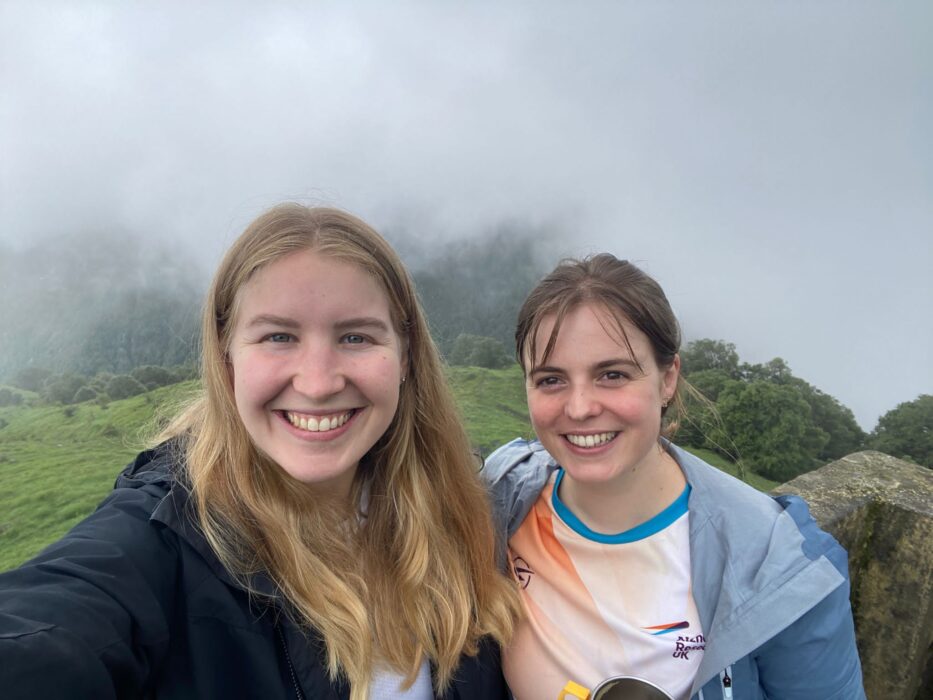
Overcoming challenges and building connections
Communication and cultural barriers presented the biggest challenge for us. Even when all parties spoke English, there was a different way of communicating which meant that Libby and I were often not understood. There were also strong hierarchical structures in the hospital which meant it was difficult for us to make progress on the projects. I was expecting a steeper hierarchy than in the NHS, however I still found this quite a difficult change to adjust to.
The most rewarding parts of the experience were building connections with the children at Sri Ram Ashram and with patients and their families at the hospice. We ran a Mandala art colouring session in the hospice which was a great success (a short video of this can be found on the Ganga Prem Hospice Facebook page)
The elective has given me confidence to step outside my comfort zone. It has been such a privilege to embrace a different culture and learn about the food, customs and way of life. It has increased my cultural competency and will be invaluable in a palliative care setting where differing attitudes towards family, death and dying may be particularly important.
My favourite experience was visiting Sri Ram Ashram orphanage to run a UK-themed quiz and a women’s health education session. The girls then invited us back the next week to be guests at their annual dance performance. It was so much fun to watch the amazing performances and all the hard work everyone had put in. We were even roped into the dancing!
Looking ahead
Libby and I will continue to be involved with the Rama Foundation and the partnership. We are invested in the development of the gynaecology service and of a bereavement support service for staff at Ganga Prem hospice, and there is scope to expand the awareness campaigns we have started. For example, “anaemia camps” run in some of the sister hospitals in the Himalayas which Swami Vivekanand could emulate. We also had such a rewarding experience at the orphanage, Sri Ram Ashram. They are not officially one of the partner organisations however we would like to discuss whether they could join the partnership.”
Ella’s trip was made possible by funding from the Thriplow Charitable Trust.
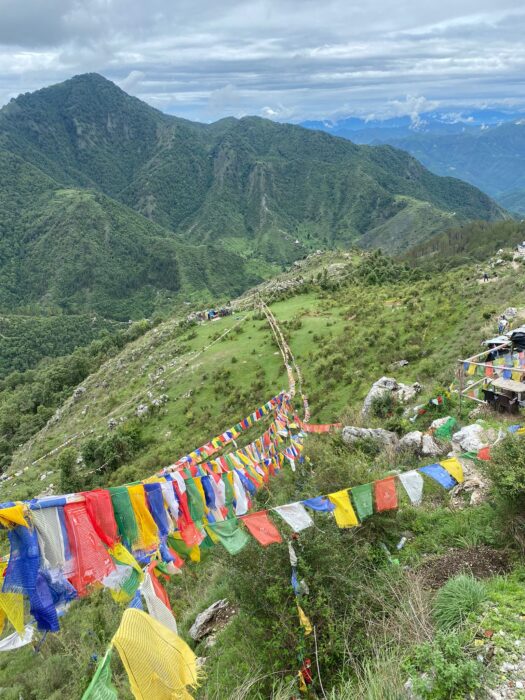
Find out more about ethical elective opportunities with CGHP’s partnership programmes, or contact us at info@cghp.org.uk
Return to blogs

